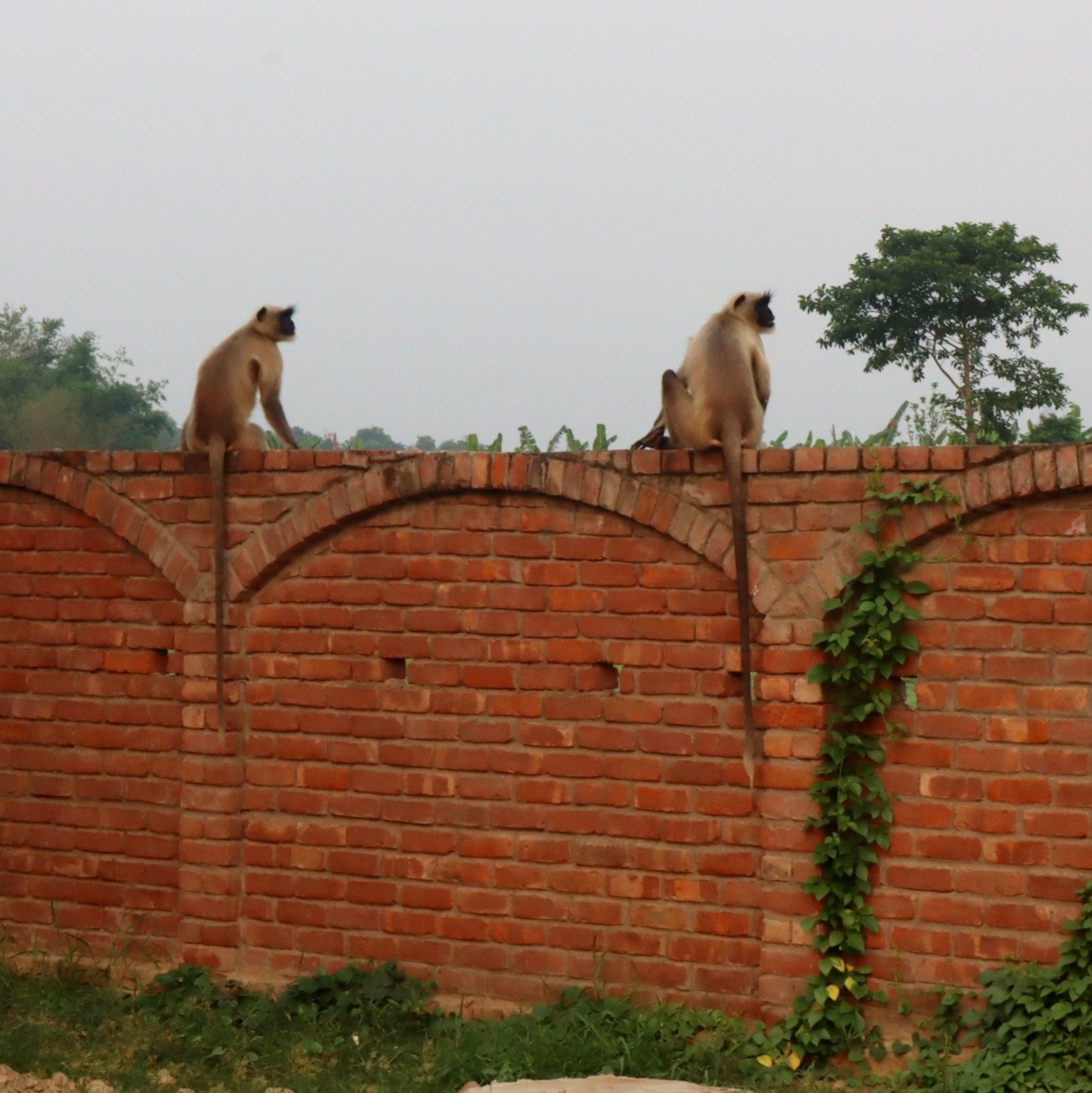
Monkey
While the birds were flying in the sky, the boys ran after the birds’ shadows along the ground and tried to follow their exact courses. Some of them went to the monkeys and silently sat down by them, and some of them imitated the dancing of the peacocks. Some of them caught the tails of the monkeys and played with them, and when the monkeys jumped in a tree, the boys also followed. When a monkey showed its face and teeth, a boy imitated and showed his teeth to the monkey.
(Krsna Book 12)
The word markaṭa-vairāgya, indicating false renunciation, is very important in this verse. Śrīla Bhaktisiddhānta Sarasvatī Ṭhākura, in commenting on this word, points out that monkeys make an external show of renunciation by not accepting clothing and by living naked in the forest. In this way they consider themselves renunciants, but actually they are very busy enjoying sense gratification with dozens of female monkeys. Such renunciation is called markaṭa-vairāgya—the renunciation of a monkey. One cannot be really renounced until one actually becomes disgusted with material activity and sees it as a stumbling block to spiritual advancement. Renunciation should not be phalgu, temporary, but should exist throughout one ‘s life. Temporary renunciation, or monkey renunciation, is like the renunciation one feels at a cremation ground. When a man takes a dead body to the crematorium, he sometimes thinks, “This is the final end of the body. Why am I working so hard day and night?” Such sentiments naturally arise in the mind of any man who goes to a crematorial ghāṭa. However, as soon as he returns from the cremation grounds, he again engages in material activity for sense enjoyment. This is called śmaśāna-vairāgya, or markaṭa-vairāgya.
(CC Madhya 16.238 purport)
Navadvīpa-dhāma, Jagannātha Purī-dhāma and Vṛndāvana-dhāma are considered to be identical. If one goes to Mathurā-maṇḍala-bhūmi for sense gratification or to make a livelihood, he commits an offense and is condemned. Whoever does so must be penalized in the next life by becoming a hog or a monkey in Vṛndāvana-dhāma. After taking on such a body, the offender is liberated in the next life. Śrīla Bhaktisiddhānta Sarasvatī Ṭhākura remarks that residing in Vṛndāvana with a view to enjoy sense gratification surely leads a so-called devotee to a lower species.
(CC Madhya 22.132)
